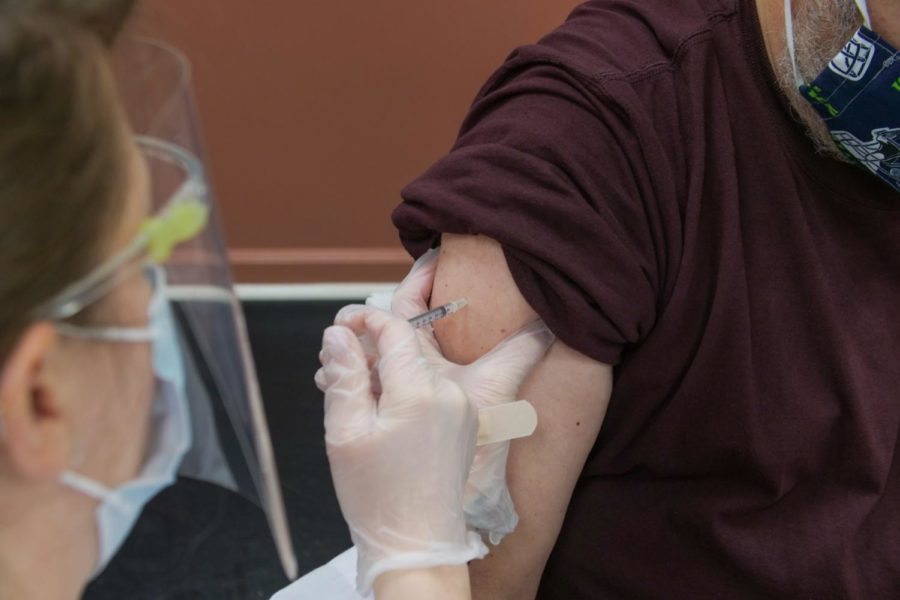What is a COVID-19 Booster Shot? And Other Questions Answered Regarding Boosters
As COVID-19 cases continue to rise in the U.S. and globally, booster shots will help in the long battle against COVID-19.
According to the CDC, side effects of the third COVID-19 booster shots closely mirror those of the second dose.
Booster shots are additional doses of the COVID-19 vaccine intended for certain populations, in order to help keep immune levels high enough to protect from the different strains of the COVID-19 virus.
Back in late September 2021, the U.S. Food and Drug Administration (FDA) authorized emergency use authorization (EUA) for the Pfizer-BioNTech COVID-19 caccine to allow for use of a single booster dose for some Americans, including for those over the age of 65, immunocompromised adults, and those who work in frontline jobs, such as teachers.
On Thursday, October 21st, 2021, the CDC approved booster recommendations for the Moderna and Johnson & Johnson vaccines. Eligible individuals can also now choose which vaccine they receive as a booster dose in case they have a preference. And on Friday, November 19th, 2021, the CDC approved boosters for all Americans over the age of 18.
The Pfizer and Moderna vaccines both use snippets of genetic code known as messenger RNA (mRNA) in order to trigger the immune system to produce protective antibodies without needing actual bits of the virus that causes COVID-19.
The Johnson & Johnson vaccine is an adenovirus vector vaccine which uses an inactivated adenovirus, a type of virus known for the common cold, specially engineered to carry the genetic code for the coronavirus’s spike protein, which is found on the surface of the virus that causes COVID-19. The genetic instructions allow the body to build the spike protein, which the immune system can then recognize if it encounters the real thing.
Nearly 15 million Americans received the Johnson & Johnson vaccine. Regardless of age, living or working conditions, or immunity status, they are encouraged to get a booster shot two months or more after they first receive the vaccine. They may choose to get another dose of the Johnson & Johnson vaccine or get a dose of one of the mRna vaccine boosters.
Meanwhile, those who initially got the Moderna vaccine were given similar guidance to Pfizer recipients: six months after their second dose, senior citizens, immunocompromised people and those working or living in high-risk environments should get a booster shot of any vaccine.
A National Institutes of Health study found that the approach of “mixing and matching,” or giving a booster dose of a vaccine different from the vaccine type that was used for the initial vaccination series, is safe and effective. The study found that people who received the Johnson & Johnson vaccine produced stronger antibody levels after they got booster shots made by Moderna or Pfizer compared to boosters from Johnson & Johnson. Those who were originally vaccinated with the Pfizer or Moderna vaccines and received either Pfizer or Moderna’s booster shot produced similarly strong immune responses, the researchers found.
While in some cases mixing and matching may provide a more powerful boost, any booster shot will bring up immune protection to very high levels.
The data indicates that the original two doses of the vaccines are still very effective in providing protection for most people. While there’s evidence of waning immunity for some people, especially older ones, the original two doses are still strongly protecting most people against severe disease, hospitalization, and death.
Federal health officials say they are watching data carefully to see if there are any indications that immunity is abating for younger groups of healthy people. If so, they can move quickly to lower age guidelines and open eligibility criteria. This booster is designed to help people maintain their level of immunity for longer.
Just as with the initial vaccines, COVID-19 booster shots are free in America, regardless of one’s immigration status.
To get your vaccine visit vaccines.gov, where you can text your ZIP code to 438829, or call 1-800-232-0233 to find locations near you.
With mandates coming into effect and the spread of the Delta variant, booster shots are a glimmer of hope compared with the rest of the news surrounding the Coronavirus pandemic. While the rollout of booster shots continues, a large portion of the United States has yet to receive their first dose. While millions of people are newly eligible to receive a booster shot and the added protection that comes with it, a large population of the U.S. still remains unvaccinated. Sadly, only 59 percent of Americans are fully vaccinated as of the date of publication of this article; among Group of 7 nations, this is the lowest rate of them all. More than 65 million people who are eligible in America have chosen to remain unvaccinated, leaving themselves and those around them vulnerable to COVID-19. As the push to get all Americans fully vaccinated continues, make sure to stay up to date and informed with the latest, reliable news in order to stay informed.
With mandates coming into effect and the spread of the Delta variant, booster shots are a glimmer of hope compared with the rest of the news surrounding the Coronavirus pandemic.
Jessica Zheng is a Features Section Editor for 'The Science Survey.' She is passionate about reporting on current events that affect the general population...











